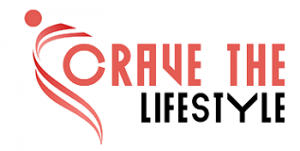Skyward Treatment Center’s comprehensive alcohol addiction treatment programs strive to treat both the body and the mind while addressing alcoholism. Alcohol addiction has become a menace in the United States with more than 15 million persons battling it and only a tenth of that population receiving appropriate treatment. That is why alcohol rehabs like Skyward are very vital. We offer a diverse range of alcohol rehab programs. Each program is complemented by several services and addiction treatment therapies to ensure its efficacy. Read through for more information regarding the different alcohol rehab programs and therapies. But first, let’s get to know who needs an alcohol rehab program.
Do I Need an Alcohol Rehab Program?
Alcohol use disorder (AUD)/alcoholism/alcohol addiction is a medical condition characterized by obsessive alcohol-seeking behavior despite the physical and psychological effects. The severity of the illness can vary from mild to severe depending on a few variables. However, anyone struggling with alcohol addiction, whether mild or severe, needs professional help and that’s why even the alcohol rehab programs differ in intensity. Now how do I know that I have an alcohol addiction? Below are some of the signs of alcohol addiction:
- Tolerance- Needing more alcohol for the same high.
- Experiencing withdrawal symptoms when trying to quit or reduce drinking.
- Experiencing strong cravings.
- Excessive drinking.
- Devoting lots of time and money to drinking.
- Being unable to quit drinking despite wanting to.
- Finding yourself in financial or legal trouble due to drinking.
- Engaging in risky behaviors while drunk.
- Neglecting important obligations like work or school in favor of drinking.
- Isolation and social withdrawal.
- Fatigue, depression, and emotional challenges when not drinking.
Seek help now before the situation worsens!
Two Main Types of Alcohol Rehab
Inpatient alcohol rehab. Inpatient alcohol rehabilitation is sometimes referred to as residential treatment. This kind of therapy lasts 30 to 90 days and requires you to remain in a treatment center for the duration of care. The length of your stay is dependent on a few factors including the kind of addiction you have and its severity. Other factors that influence the duration of your stay include whether you have already tried rehab before and failed and whether you have a diagnosed underlying mental health illness.
Outpatient alcohol rehab. This is the most appropriate form of rehab for individuals struggling with moderate addictions. Research has found that outpatient rehab can be as efficient as inpatient rehab for AUD (Alcohol Use Disorder). Outpatient treatment entails attending weekday sessions which involve learning how to conquer your alcoholism in order to increase your chances of remaining clean. However, outpatient programs are not ideal for everyone. Avoid them if you do not have a strong support system at home.
Different Therapies Used to Treat Alcohol Addiction in an Alcohol Rehab
Alcohol rehabs use a variety of therapies to treat alcoholism, each of which addresses a distinct component of recovery. These therapies include:
- Cognitive Behavioral Therapy (CBT). Helps identify and change negative thought patterns and behaviors related to drinking.
- Dialectical Behavior Therapy (DBT). Teaches mindfulness, emotion regulation, and distress tolerance skills.
- Motivational Interviewing. Enhances motivation and commitment to change.
- Contingency Management. Provides incentives for achieving sobriety goals.
- Family Therapy. Addresses family dynamics and improves communication.
- Group Therapy. Offers peer support and shared experiences.
- Individual Counseling. Explores personal issues and coping strategies.
- Medication-Assisted Treatment (MAT). Medications like naltrexone or acamprosate manage cravings and withdrawal.
- Trauma-Informed Therapy. Addresses underlying trauma contributing to addiction.
- Mindfulness Practices. Cultivates present-moment awareness and stress reduction.
- Relapse Prevention. Develops skills to identify and manage triggers.
These therapies are often used to offer a comprehensive, personalized treatment plan that addresses the various facets of alcohol addiction and promotes long-term recovery. They can be incorporated in both types of alcohol rehab programs i.e., outpatient and inpatient alcohol rehab.
Achieve Long-Term Recovery at Skyward Treatment Center’s Alcohol Addiction Treatment Center in Fort Worth, TX.
Skyward Treatment Center’s addiction treatment center in Fort Worth, TX, offers evidence-based alcohol treatment that focuses on the whole person. We understand that incomprehensive treatment can lead to incomplete recovery. That is why we offer so many addiction treatment therapies. Call us for safe and trustworthy alcohol addiction treatment.


 How to Choose the Best Dental Products for Your Needs?
How to Choose the Best Dental Products for Your Needs?  Common Entry Points for Pests in Homes
Common Entry Points for Pests in Homes  Floral Arrangements: Pairing Flower Vases with Artificial Flowers
Floral Arrangements: Pairing Flower Vases with Artificial Flowers  Efficiency Hacks with Material Handling Equipment: Power Up Your Workshop
Efficiency Hacks with Material Handling Equipment: Power Up Your Workshop  Unlock Your Business Potential with the Leading Digital Marketing Agency in Bristol
Unlock Your Business Potential with the Leading Digital Marketing Agency in Bristol  The Ultimate Guide To Vulcan Cladding: Benefits And Applications
The Ultimate Guide To Vulcan Cladding: Benefits And Applications  Beyond the Diamond: Selecting Alternative Gemstones or Opting for No Stone at All
Beyond the Diamond: Selecting Alternative Gemstones or Opting for No Stone at All  7 Unique Tips to Hire the Best Accountant for Your Company
7 Unique Tips to Hire the Best Accountant for Your Company  Discovering The Development of Dating Apps
Discovering The Development of Dating Apps 